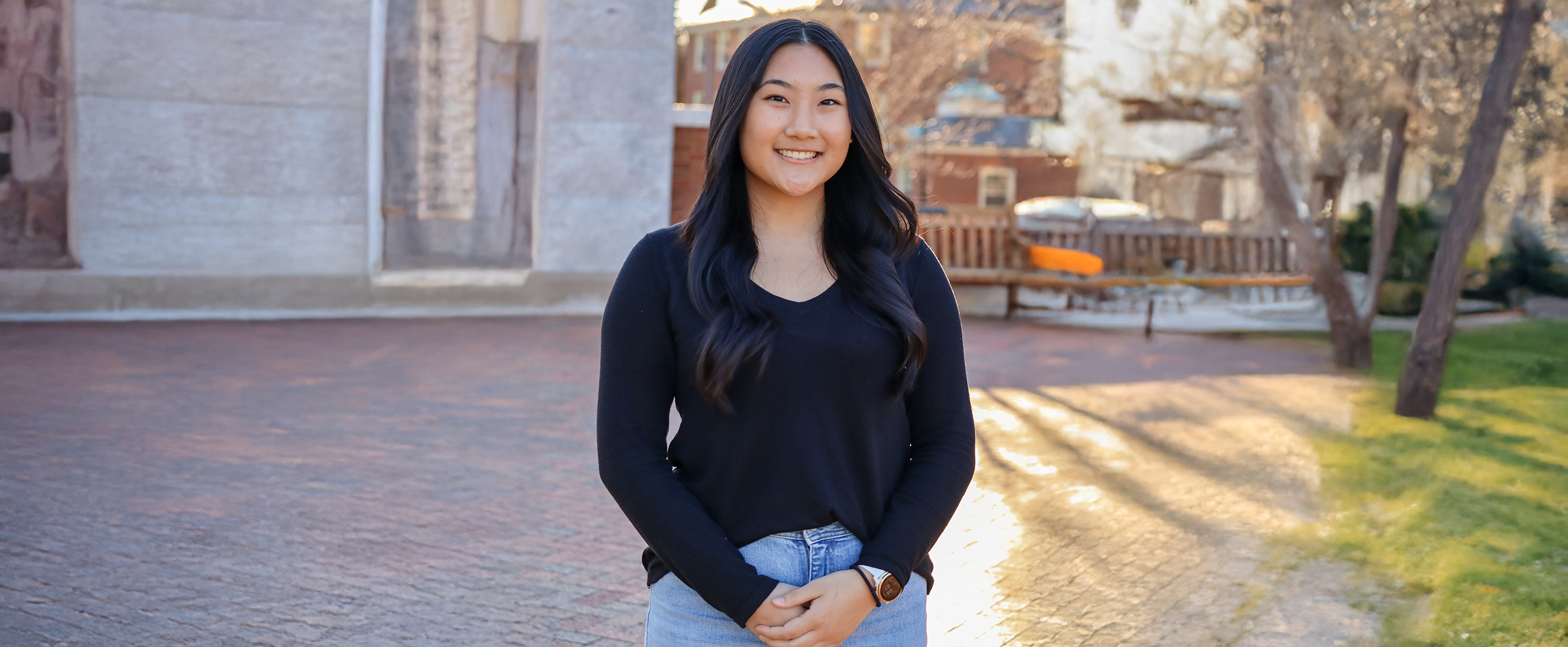Kat Tsai

What is the most fundamental change you’ve experienced since your time as a first-year student?
Wake Forest has taught me the value of building a strong support network and, more importantly, the strength in leaning on that support when I need it most. Asking for help has never come easily to me, but my time at Wake has shown me that support is always within reach, and that seeking it is a sign of resilience, not weakness.
What non-academic experience at Wake Forest was most meaningful to you?
Some of the most meaningful non-academic experiences I’ve had at Wake Forest have come through my involvement in the Rowing Club and Delta Zeta sorority. Rowing holds personal significance for me—it’s a sport my father once pursued, and coming from an arts-focused high school without athletic programs, I hadn’t had the chance to participate in organized sports until Wake. My engagement in Delta Zeta has been equally transformative. Serving on the executive board as Vice President of Accountability for the Panhellenic Council, I’ve had the opportunity to lead with integrity, promote community standards, and support the growth of our Greek community.
Wake Forest’s Pro Humanitate motto is a guiding philosophy for many students and alumni. Did it have an impact on your student experience and has it influenced your plans for the future?
Wake Forest’s Pro Humanitate motto has been more than just a phrase during my college experience—it’s been a guiding principle that has shaped how I approach service, leadership, and my future. I saw this value come to life most vividly through my role in Hit the Bricks, one of Wake’s most beloved philanthropic traditions. As the first Director of Abroad, I had the opportunity to help connect students across the globe to a cause greater than ourselves raising funds and awareness for the Brian Piccolo Cancer Research Fund.
That sense of collective purpose deeply resonated with me. This commitment to serving others continued beyond campus through my role with Public Health AmeriCorps, where I worked directly with communities to promote health equity and access. It was a hands-on experience that reaffirmed my desire to pursue a future where I can meaningfully impact the well-being of others. Pro Humanitate has not only shaped my time at Wake Forest—it’s become a lens through which I view my career and my responsibility to the world around me.
What was your favorite class outside your major or minor areas of study and why did it appeal to you?
One of my favourite classes outside of my major was Introduction to Bioethics with Professor Ana Iltis. The course challenged me to think critically about the ethical implications of medicine, research, and public health policy —topics that felt both timely and deeply personal given my interest in community health. Professor Iltis created a space where difficult questions had no easy answers, encouraging open dialogue and thoughtful debate. What I appreciated most was how the class blended philosophy with real world application, pushing me to consider not just what we can do in healthcare, but what we should do. It left a lasting impression and continues to inform how I think about justice, equity, and the human side of health-related decision-making.
Wake Forest has lots of traditions, and sometimes students create their own. Do you have a favorite Wake Forest tradition?
Hit the Bricks has always been my favourite Wake Forest tradition. It was the very first tradition I participated in as a freshman, and even then, I was struck by the energy, unity, and sense of purpose that filled Hearn Plaza. As a senior, I had the unique privilege of serving as the Director of Abroad, helping students studying internationally stay connected to this incredible cause. Being part of both the excitement on the bricks and the effort to expand the tradition beyond campus was incredibly meaningful. Hit the Bricks captures everything I love about Wake—community, service, and a shared commitment to something bigger than ourselves.
Imagine you return to campus for your 10-year reunion. What do you hope will remain the same? What do you hope will be different?
When I return to campus for my 10-year reunion, I hope the spirit of Pro Humanitate remains just as strong—if not stronger—than it was during my time at Wake. That commitment to service, community, and purpose is what makes Wake Forest so special, and I hope future students continue to carry it forward. I also hope Wake’s athletic programs are thriving and that cheering on the Deacs is still a proud campus tradition.
That said, I wouldn’t mind seeing a few changes—starting with a long-overdue renovation of Collins Residence Hall. I loved living there and met some of my closest friends in those halls, but I think we can all agree that the carpet had seen better days, and consistent hot water wouldn’t hurt either.
Now that you are a graduating student, what advice do you wish you could have given yourself as an incoming student four years ago?
If I could give my first-year self one piece of advice, it would be this: just go for it. Don’t hold back because you’re worried about what other people might think. If something excites you or sparks your curiosity, try it—even if no one you know is doing it. Some of my favourite experiences at Wake came from moments when I took that leap: applying for a leadership role with Hit the Bricks, signing up for sorority recruitment, joining clubs that were completely new to me. Those choices helped shape my time here in the best ways. Trust yourself, be bold, and say yes to the things that matter to you.
